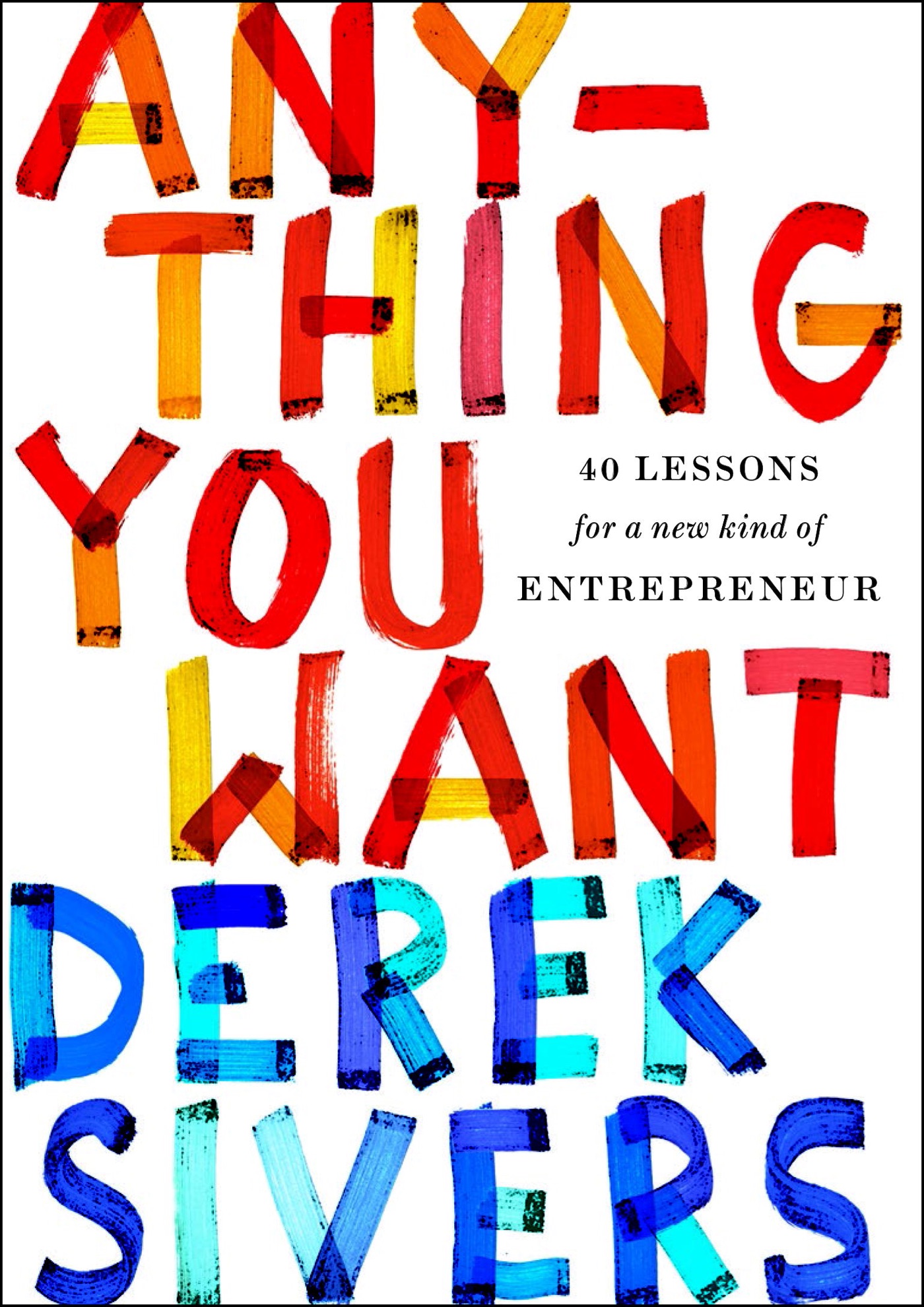
Metadata
- Author: Derek Sivers
- Full Title: Anything You Want
- Category:
Highlights
We’ve all heard about the important of persistence. But I had misunderstood. Success comes from persistently improving and inventing, not from persistently doing what’s not working. We all have lots of ideas, creations and projects. When you present one to the world and it’s not a hit, don’t keep pushing it as is. instead get back to improving and inventing. Don’t waste years fighting uphill battles against locked doors. Improve or invent until you get that huge response (Page 11)
Keep doing what works Don’t waste years fighting uphill battles
How do you grade yourself? For me, it’s how many useful things I create, whether songs, companies, articles, websites, or anything else. If I create something that’s not useful to others, it doesn’t count. But I’m also not interested in doing something useful unless it needs my creative input. How do you grade yourself? It’s important to know in advance, to make sure you’re staying focused on what’s honestly important to you, instead of doing what others thing you should (Page 37)
As a business owner, when you screwed over by someone, you might be tempted to make a big grand policy that you think will prevent you ever getting screwed over again: One employee can’t focus and spends his time surfing the Web. Instead of just firing or reassigning that person to more challenging work, the company installs an expensive content-approving firewall so that nobody can go to unapproved sites ever again. It’s important to resist that simplistic, angry, reactionary urge to punish everyone, and step back to look at the big picture. (Page 42)
You should feel pain when you’re unclear When writing an email to everyone, if I wasn’t perfectly clear, I’d get twenty thousand confused replies, whihc would take my staff all week to reply to, costing me at least $5,000 plus lost morale. Ever if I was very clear but took more than a few sentences to explain something, I’d get thousands of replies from people who never read past the first few sentences. Writing the email to customers-carefully eliminating every unnecessary word, and reshaping every sentence to make sure it could not be misunderstood-would take me all day. One unclear sentence? Immediate $5,000 penalty. Ouch. Unfortunately, people writing websites don’t get this kind of feedback. Instead, if they’re not clear, they just get silence. (Page 46)
When you’re thinking of how to make your business bigger, it’s tempting to try to think all the big thoughts and come up with world-changing massive-action plans. But please know that it’s often the tiny details that really thrill people enough to make them tell all their friends about you. (Page 48)
When you want to learn how to do something yourself, most people won’t understand. They’ll assume the only reason we do anything is to get it done, and doing it yourself is not the most efficient way. But that’s forgetting about the joy of learning and doing. Yes, it may take longer. Yes, it may be inefficient. Yes, it may even cost you millions of dollars in lost opportunities because your business is growing slower because you’re insisting on doing something yourself. But the whole point of doing anything is because it makes you happy. That’s it! (Page 59)
Same Process. 1. Gather everybody around. 2. Answer the question and explain the philosophy. 3. Make sure everyone understands the thought process. 4. Ask one person to write it in the manual. 5. Let everybody know they can decide this without me next time. After two months of this, there were no more questions. (Page 70)
What if what you love the most is the solitude of the craft? Of talking to customers? Never forget that you can make your role anything you want it to be. Anything you hate to do, someone else loves. So find that person and let her do it. (Page 72)
I learned an important word: abdicate. To abdicate means to surrender or relinquish power or responsibility; this word is usually used when a king abdicates the thong or crown. Lesson learned too late: Delegate, but don’t abdicate.
